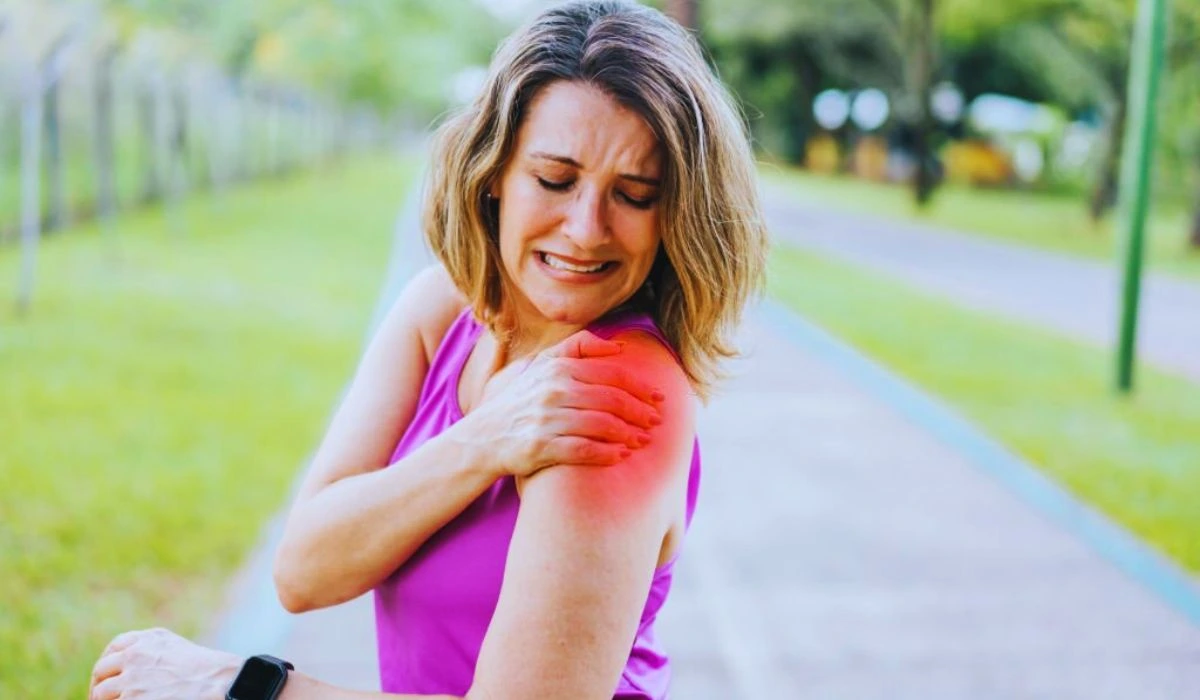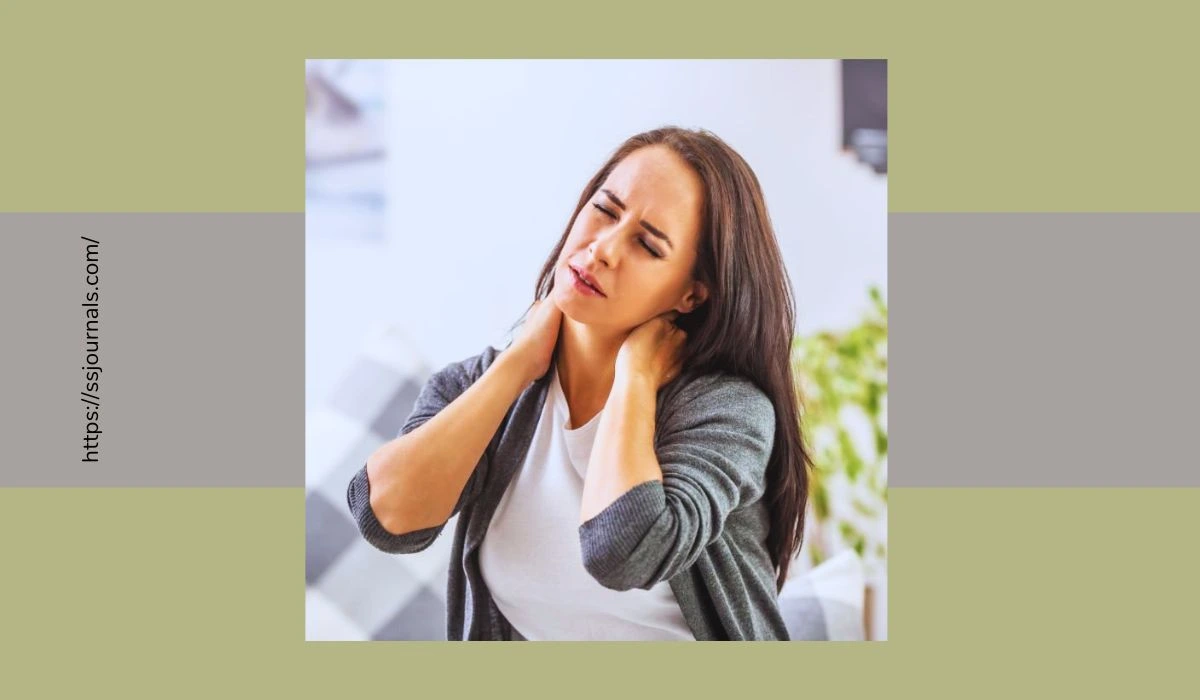Menopause is a natural transition that all women go through as they age. It marks the end of a woman’s reproductive years and is usually diagnosed after 12 months of no menstrual periods. The average age of menopause is 51 years old, but it can occur earlier or later for some women.
During menopause, a woman’s body experiences many changes as estrogen levels decline. One of the common symptoms associated with menopause is joint pain and stiffness. In this article, we will discuss the connection between menopause and joint pain, steps to prevent joint pain, and ways to manage it.
Understanding Menopause
Menopause occurs when a woman’s ovaries stop releasing eggs. This causes estrogen and progesterone levels to decline. It signals the end of a woman’s fertility. The transition to menopause is called perimenopause and can last up to 10 years as hormone levels fluctuate erratically.

The symptoms of menopause arise from these hormonal changes. Common symptoms include hot flashes, night sweats, vaginal dryness, irregular periods, mood changes, trouble sleeping, and joint pain. Joint pain affects many women going through menopause. Let’s examine the connection between hormones and joint health.
Also Check: Medical Conditions That Cause Joint Pain: Is It More Than Just Aging?
Can Menopause Cause Joint Pain? Understand The Relation
During perimenopause and menopause, the decline of estrogen can impact bone and joint health. Estrogen helps maintain bone density and strength. With less estrogen, women may lose bone mass making joints more susceptible to pain and osteoarthritis.
Additional factors like age, genetics, and lifestyle choices also play a role. However, the estrogen deficiency that comes with menopause appears to be linked to joint issues in the following ways:
- Weak Bones and Muscles – Estrogen helps bones absorb calcium, so less estrogen can cause bone loss and muscle mass decline. This reduces support for joints.
- Inflammation – Estrogen has anti-inflammatory effects on the body. The drop in estrogen during menopause allows inflammation levels to rise, which can irritate joints.
- Joint Cartilage – Estrogen helps maintain healthy cartilage in joints. After menopause, cartilage can degrade easier leading to joint pain and stiffness.
- Body Fat Distribution – Menopause shifts where fat accumulates in the body, often to the abdomen and waist. This puts more stress on the joints.
So while menopause alone does not directly cause joint pain, the hormonal changes and other factors related to menopause can increase a woman’s risk for developing painful joints and osteoarthritis. Proper management is key to preventing significant joint issues.
How To Prevent Joint Pain Caused By Menopause
Here are some tips to help prevent and reduce joint pain associated with menopause:
- Get Regular Exercise – Weight-bearing and muscle-strengthening exercises will help maintain bone and muscle mass to support your joints. Try walking, strength training, yoga, or Pilates.
- Improve Posture and Body Mechanics – Reduce strain on joints by distributing weight evenly, using proper lifting techniques, and avoiding repetitive stress injuries.
- Lose Excess Weight – Shedding extra pounds takes the pressure off joints and reduces inflammation.
- Eat Calcium and Vitamin D – Get enough calcium for bone health through food or supplements. Vitamin D aids calcium absorption.
- Stay Hydrated – Dehydration can cause joint pain and stiffness, so drink plenty of water.
- Use Topical Estrogen – Creams with low-dose estrogen can help treat vaginal dryness and painful intercourse.
- Try Acupuncture – Studies show acupuncture can reduce arthritis pain and stiffness.
- Use Hot/Cold Therapy – Alternating heat and cold on painful joints provides temporary relief.
- Explore Supplements – Glucosamine, chondroitin, fish oil, and turmeric may help ease joint discomfort. Consult a doctor first.
- Practice Stress Management – High stress can increase inflammation and intensify joint pain. Try relaxing activities before bed.
- Listen to Your Body – Avoid overdoing activities that aggravate joint pain. Switch to lower-impact exercises as needed.
Read More: All About Male Menopause: Symptoms, Causes, And Treatments
Conclusion
Menopause can make women more vulnerable to joint pain and osteoarthritis due to the drop in estrogen and its effects on bone, muscle, and cartilage health. However, through healthy lifestyle measures like staying active, managing weight, eating nutritious foods, and utilizing stress-reducing strategies, women can lower their risk of developing painful joints.
Being proactive about joint health will help women stay active and ease the transition through menopause. Seeking early treatment for joint pain and utilizing methods like physical therapy, pain medication, supplements, hot/cold therapy, and acupuncture can also help manage symptoms.
With proper self-care and medical guidance, joint discomfort does not have to be an inevitable part of menopause. Women can take control by understanding the connection between hormones and joints, making smart lifestyle choices, and using available treatments to find relief.
FAQ
A: Many women report increased joint pain during perimenopause as hormone levels start to fluctuate. Joint pain often persists into postmenopause as well.
A: The joints most commonly affected are the knees, hips, lower back, hands, and shoulders.
A: Hormone changes alone do not directly cause joint pain but they are a contributing factor along with aging, inflammation, bone/muscle loss, genetics, and injury risk.
A: Hormone replacement therapy may help reduce menopause-related joint pain but its effectiveness varies individually. Other prevention tips should be followed as well.
A: Your doctor may prescribe certain pain medications, anti-inflammatories, or low-dose antidepressants to help manage joint pain associated with menopause.

